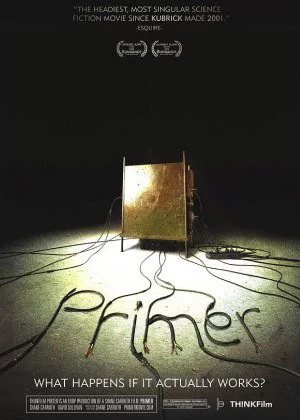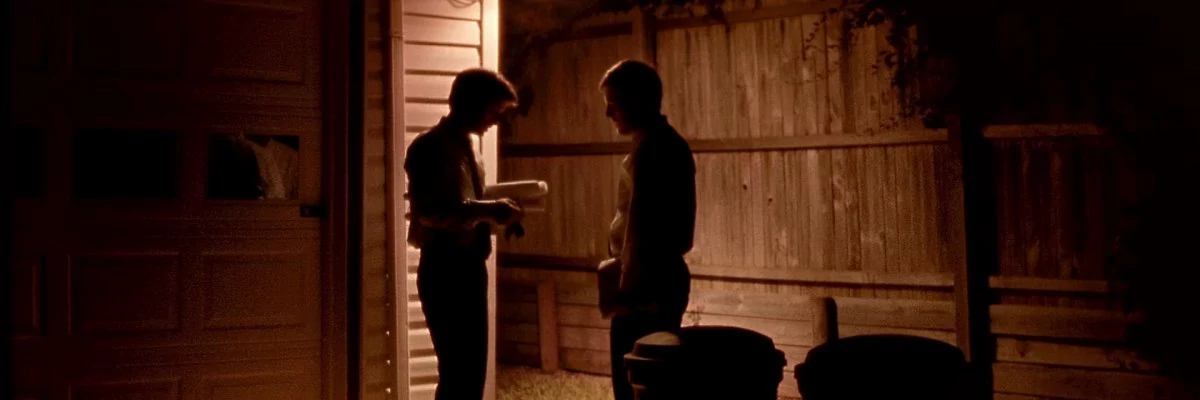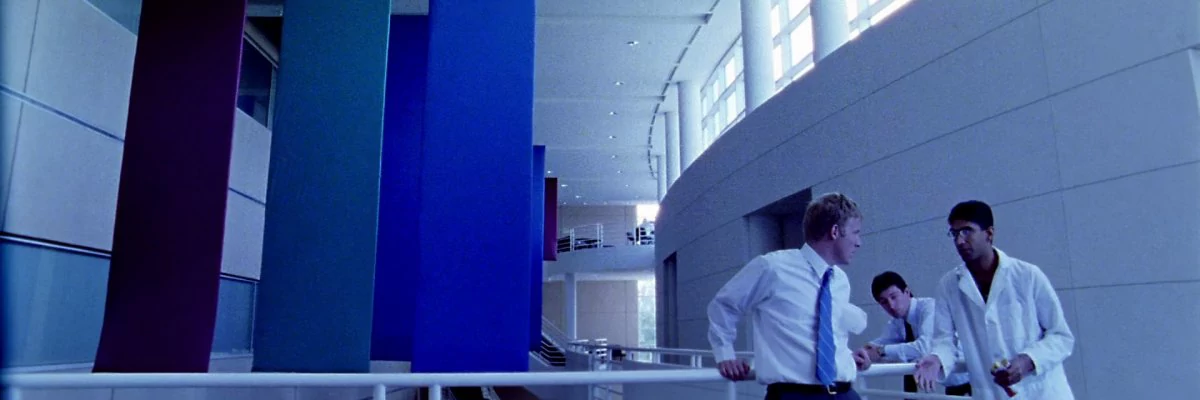Primer

Never try to solve a paradox. Apart from going crazy or short-circuiting an AI, there's very little to be gained from trying. And yet, most time travel films I've seen so far have been unable to avoid this obvious pitfall. But there are some films that try to be smarter. Depending on whom you ask, Shane Carruth's Primer is the best time travel film ever made. I'm in that particular camp and even after several viewings, Primer can't cease to amaze me.

Shane Carruth (Upstream Color) became a director the hard way. One day, he just quit his job as a software engineer and decided to dedicate all his time to making a feature film. From production to script, from music to directing, from editing to casting and even taking up the lead role, Carruth was there at every step of the process, making sure Primer would turn out the way he envisioned it. It shows, as the film breaks with quite a few conventions. While it's clearly not a film made by a seasoned director, the result isn't any less impressive.
Carruth's master move is making sure the audience lives through the same experience as the film's main characters. We follow a group of four hobbyist scientists that tinker away in their garage, hoping to hit the jackpot by inventing something big. When on the brink of giving up, they construct something that absolutely baffles them. Unsure of the applications of the device, they go on to explore what the hell they just invented.
While Carruth isn't shy to bring forward a little science to back up several concepts and ideas, the bottom line is simple enough: nobody knows what the hell is going on and even as they progress (and find out about its time travelling capabilities) they continue to move forward in a cloud of mystery. The time travelling paradox is there of course, but the scientists just take things the way they come rather than come up with a solid explanation. The film relies more on black box testing than actual explanations, which somehow makes it way more believable than any of its peers.

Primer was clearly made on a shoestring budget. The grainy DV look does work well for the film, but it's fairly obvious that apart from choice, it was also very much necessity. But Carruth does make the best of it. The camera work is solid and controlled, some monochrome filters do the rest, resulting in decidedly low-key but enjoyable visuals.
The soundtrack is something else. Carruth wrote the music for Primer himself, and it shows. Smooth and subtle ambient tunes pop up at exactly the right times, adding a dreamy layer to the already mysterious atmosphere. Just do the test yourself by muting the sound from time to time, and you'll see how seemingly plain and uneventful scenes will suddenly transform in atmospheric masterpieces. Not that the score itself is so incredibly memorable or complex, it's just that it is used to absolute perfection.
Carruth takes up the lead role and is assisted by a cast of inexperienced (most of them first-time) actors. While obviously no Oscar material, the cast does a pretty good job. Carruth and Sullivan (his closest buddy in the film) in particular stand out as pleasantly comfortable with their roles. The rest is solid, then again, apart from the two leads pretty much every other role in the film is extremely limited in scope.

If you want intrigue and/or drama, be prepared to wait until the very end of the film. Carruth takes his time to document the exploration of the invention, and doesn't seem all that interested in the aftermath. For me personally, the intrigue at the end of the film wasn't even necessary, but it doesn't detract or irritate either. Do know that you'll probably be quite overwhelmed (and a little lost) the first time through. While the film does make sense after a couple of viewings, I still have trouble recounting the actual plot lines afterwards. If you look online there are plenty of theories, observations and even diagrams that dig into the film's structure, but that's not really my thing.
I love Primer for its calm and mysterious atmosphere, its exploration of the wonders and dangers of a scientific breakthrough that can't really be explained. The mystery in this film is perfect, the technical finish sufficient. The soundtrack does deserve a special mention, as it lifts the entire film to a higher level. Absolutely recommended for fans of down-to-earth sci-fi, geeky science and convoluted plot lines. Others may still love or like the film, but should approach with caution.